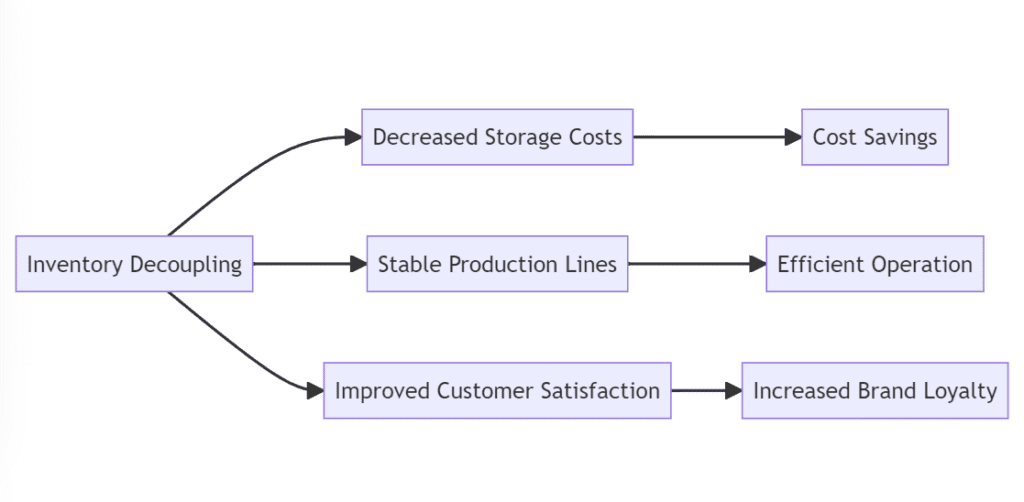
Introduction
Inventory decoupling plays a significant role in reshaping the landscape of supply chain management. Its application ensures a smooth, efficient operation that enables businesses to meet customer demands while reducing costs.
The Concept of Inventory Decoupling
Inventory decoupling is the process of dividing your stock into independent units to cushion against fluctuations in supply and demand. It acts as a buffer, safeguarding your business from sudden changes in the market and ensuring uninterrupted production and supply.
Decoupling Inventory: Why It Matters
The significance of decoupling stock is largely underpinned by its ability to reduce costs and improve operational efficiency. It offers businesses the ability to ensure that production is always in line with demand. This alignment helps mitigate the risk of overproduction and underproduction, resulting in decreased storage costs and increased customer satisfaction.
How Decoupling Stock Enhances Supply Chain Resilience
By incorporating decoupling stock in supply chain management, businesses gain an edge by enhancing their resilience. This approach aids in navigating disruptions, stabilizing production lines, and meeting consumer demand effectively.
Successful Decoupling: A Closer Look at Inventory Management
Successful decoupling is a matter of strategic stock management. It involves assessing demand patterns, understanding lead times, and applying smart reordering strategies. Businesses also need to have a solid grasp on safety stock calculations to ensure that their decoupled inventory acts as a sufficient buffer during unexpected fluctuations.
Bridging the Gap: The Role of Technology in Decoupling Stock
Advanced technology such as AI and machine learning can play a vital role in effectively decoupling stock. These technologies enable precise forecasting, real-time inventory tracking, and proactive decision-making, thereby making the decoupling process more efficient and reliable.
Case Study: Inventory Decoupling in Practice
To understand the real-world benefits of decoupling stock, consider the example of a well-known electronics manufacturer. By implementing an decoupling stock strategy, the company was able to maintain a steady supply of components despite fluctuating demand, resulting in an increase in customer satisfaction and significant cost savings.

The Future of Inventory Decoupling
Looking ahead, the future of decoupling stock appears promising. With advancements in technology and a growing recognition of its benefits, more and more businesses are likely to incorporate decoupling stock into their supply chain strategies, thereby revolutionizing the realm of inventory management.
Conclusion
Decoupling stock serves as a strategic lever for businesses to improve their supply chain efficiency, reduce costs, and better cater to customer demands. Its adoption can empower businesses to successfully navigate the challenges posed by an increasingly volatile market, driving their success and sustainability in the long run.